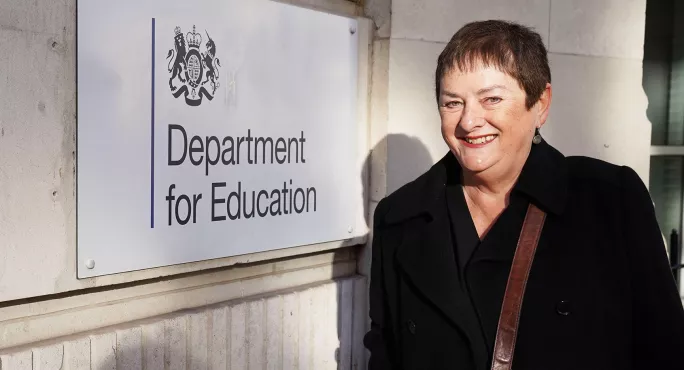Teacher strikes could launch next month

A teachers’ union leader has said strike action could launch from next month but is unlikely to happen during exams.
Joint general secretary of the NEU teaching union, Dr Mary Bousted, has said she believes the union will meet the threshold of 50 per cent of members voting, which is needed to launch industrial action, with results expected to be announced later today.
If the legal thresholds for strike action are met, Dr Bousted said strikes could go ahead as early as 1 February.
And Dr Bousted said she couldn’t rule out strike action during the exam period this summer, but thought it would be “very unlikely”.
Speaking to Kay Burley on Sky News this morning, Dr Bousted said that she thought from the union’s “own internal polling, I think that we will meet the thresholds, but I can’t be sure”.
Dr Bousted said she would find out slightly earlier than members at around 2pm today.
She added: “If my members take this action, it is with a heavy heart and it is because they feel they have not been listened to and they have no other choice.”
- Civica: Teacher strike votes ‘may have been delayed by post disruption’
- Exclusive: Teacher strike vote challenged over missing ballots
- Strike ballot: NASUWT fails to hit threshold for strike action
- Background: Teaching unions move closer to strike action as ballots announced
Asked by Ms Burley if she could reassure viewers that there would not be strike action during the exam period, Dr Bousted said: “I think that that would be very unlikely. I don’t think teachers would do that or want to do that.”
While Dr Bousted said she couldn’t “rule it out”, she said her “strong feeling is that that wouldn’t be done”.
She continued: “Even if there was strike action on an exam day, actually, there would be cover for the children to do the exams and all the work has been done prior to that.”
Dr Bousted said if the union does meet the threshold for strike action “we would just get under the wire for 1 February”.
Asked if the NEU would look at setting strike dates from the first of next month, Dr Bousted said it was “absolutely” something the union would look at.
“The government has known that we have been balloting our members...They didn’t call us in to discuss this or to negotiate, I didn’t get one call from the secretary of state for education.”
Dr Bousted said the unions were “called in for the first time on 9 January for an hour meeting” with the secretary of state, which was “perfectly pleasant...but it achieved nothing”.
Writing in the Telegraph yesterday, children’s commissioner Dame Rachel de Souza said that she felt “strongly” that teacher strikes in England would be the ”wrong course of action” as it would be ”damaging to children’s outcomes”.
Responding to Dame Rachel’s comments, Geoff Barton, general secretary of the Association of School and College Leaders, said: “Nobody wants to see strikes in schools, but let’s make no mistake that this is a crisis of the government’s making.”
He added that the situation of teacher pay, a retention and recruitment crisis and inadequate funding was “damaging the ability of schools to deliver education every day of every week”.
“They are constantly having to manage the disruption of plugging staffing gaps. Industrial action is a last resort with a government that does not listen.”
Last week, the NASUWT teaching union announced that its members would not walk out, despite 90 per cent of returned ballots calling for strike action, because the 42 per cent ballot turnout failed to reach the legal threshold for industrial action.
The ballot results for both NEU and the NAHT school leaders’ union are expected later today.
You need a Tes subscription to read this article
Subscribe now to read this article and get other subscriber-only content:
- Unlimited access to all Tes magazine content
- Exclusive subscriber-only stories
- Award-winning email newsletters
Already a subscriber? Log in
You need a subscription to read this article
Subscribe now to read this article and get other subscriber-only content, including:
- Unlimited access to all Tes magazine content
- Exclusive subscriber-only stories
- Award-winning email newsletters
topics in this article



